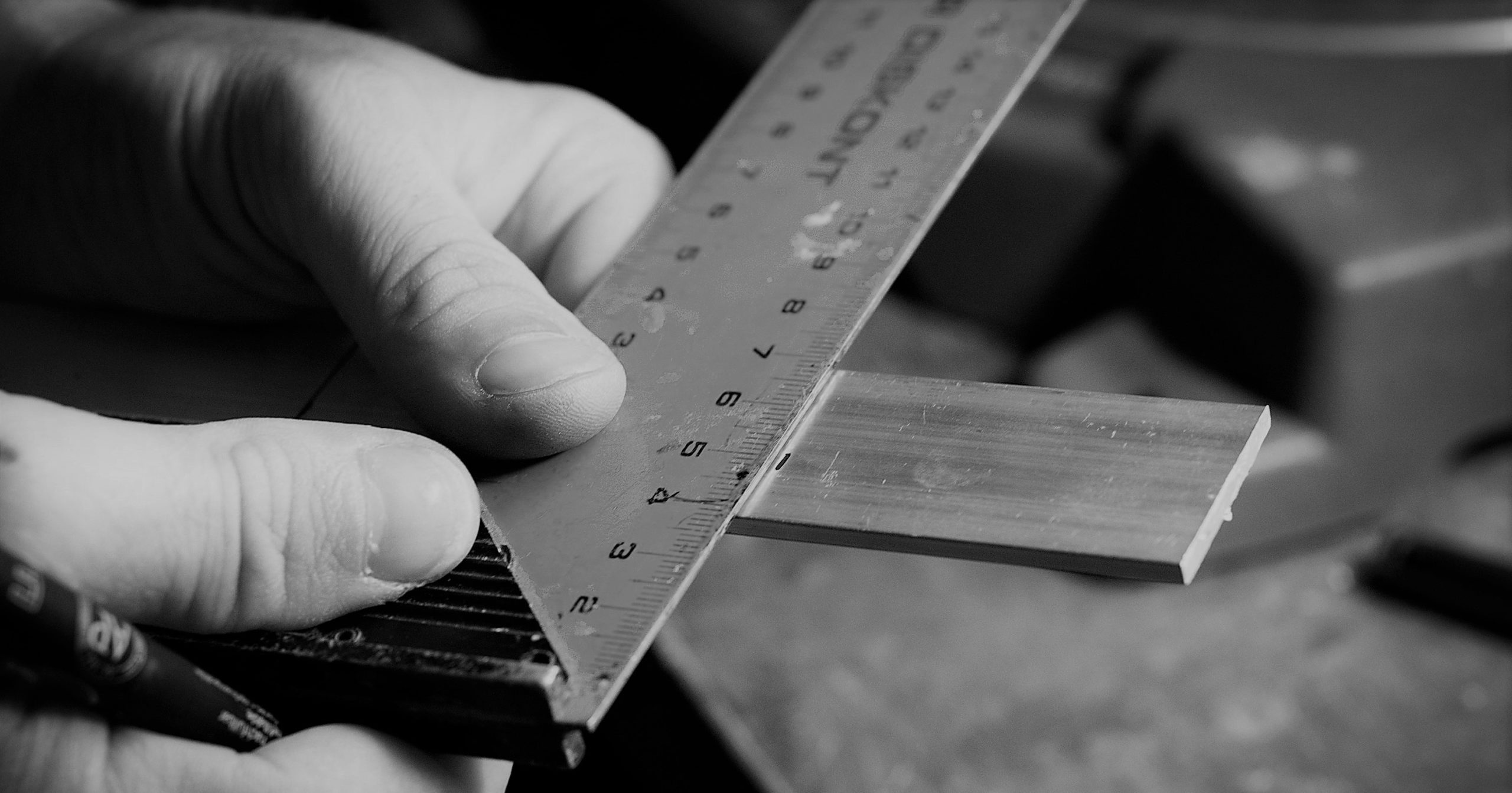Introduction To Home Warranty Insurance For Residential Builders
Home warranty insurance for builders, also known as Domestic Builders Insurance, is a key and often mandatory coverage that provides crucial protection for both homeowners and builders in the wake of builder failure, defects in workmanship, or if the builder dies, disappears, or becomes insolvent. Offering a safety net to all parties involved in a residential building project, this type of insurance brings peace of mind and financial security. This guide will delineate the step-by-step process of securing home warranty insurance, underlining its importance, outlining the significant considerations, and illuminating the benefits it yields.
One of the primary reasons this insurance is vital is its role as a financial shield for homeowners.
When embarking on a building project, homeowners make a significant investment. Building a house or purchasing one is probably the most significant purchase in the lives of many.

Home warranty insurance ensures that this investment is protected even if the unexpected occurs, providing coverage for issues such as loss of deposit, failure to start or complete the job, and defective work on a completed project. This means homeowners are not left bearing the financial burden of unexpected repair costs or incomplete work due to builder failure.
On the other side, home warranty insurance provides builders an equally crucial layer of protection against potential legal claims and financial liabilities. Building projects often involve substantial sums and complex work; defects, incomplete work, or non-completion of the project can lead to hefty financial losses and potential legal action. Home warranty insurance covers these, typically extending to six years and six months after project completion. Hence, builders are cushioned against significant financial risks, empowering them to focus on delivering high-quality work.
It is a form of risk reversal where all parties feel more confident, optimistic, and safe, with insurance coverage behind them.
Understanding Home Warranty Insurance for Residential Builders
Home warranty insurance is legally necessary for residential building projects exceeding a specific value (20K or above) in some states. The insurance plays a dual role by providing coverage for defects and incomplete work, thereby acting as a safety net for homeowners and builders. This insurance ensures that homeowners are protected in case of any issues with the building project, such as structural defects or faulty plumbing, and it also protects builders from potential legal claims and financial loss.
To illustrate, consider a scenario where a homeowner hires a builder to construct a new house. After completion, the homeowner discovers significant water damage due to faulty plumbing installation. In this case, the home warranty insurance would cover the cost of repairing the plumbing and any resulting damage, thus relieving the homeowner of a potentially overwhelming financial burden. Without this insurance coverage, the homeowner would be responsible for shouldering the total cost of repairs. The most frustrating thing, above anything else, is to prove who is at fault, what went wrong, and who will rectify the issues.
Home warranty insurance typically covers defects and incomplete work for a specified period, usually six years and six months after project completion. This coverage period is not arbitrary but is strategically designed to cover the time frame within which most construction defects become apparent. During this period, homeowners can make claims if they discover any issues with the building. The insurance will then cover the cost of rectifying the defects. Thus, homeowners are not left to bear the financial burden and can enjoy their new homes without worrying about potential defects.
The Benefits of Home Warranty Insurance
Home warranty insurance carries several benefits that extend to both homeowners and builders. For homeowners, it offers peace of mind and financial protection. It ensures that homeowners are covered in case of any defects or issues with the building project, providing coverage for rectifying them up to a maximum limit. This insurance coverage ensures that unexpected repair costs do not financially burden homeowners.
Another substantial benefit for homeowners is that home warranty insurance covers the loss of a deposit, failure to start or finish a job, and defective work on a completed project. This means homeowners are protected from financial loss if the builder fails to fulfil their obligations. In scenarios where work is left unfinished or defective, the insurance coverage will cover the cost of completing or rectifying it, ensuring homeowners are not left to bear the financial responsibility.

For builders, home warranty insurance protects against potential legal claims and financial liabilities. It serves as a safety net, ensuring that builders are not exposed to significant financial risks due to defects or issues with the building project. In the event of a claim, the insurance will cover the cost of rectifying the defects, thereby reducing the financial burden on builders and allowing them to focus on delivering high-quality work.
To further illustrate the benefits of home warranty insurance, let’s consider a scenario where a builder completes a residential building project. A few months after completion, the homeowner discovers a structural defect in the building. Without home warranty insurance, the builder would be responsible for the total cost of rectifying the defect. However, with the insurance in place, the builder can make a claim and have the cost of rectification covered, minimising their financial liability.
In summary, home warranty insurance provides peace of mind and financial protection for homeowners and builders. It ensures that homeowners are covered in case of any defects or issues with the building project and protects builders from potential legal claims and financial loss.
Legal Requirements for Home Warranty Insurance
The Home Building Compensation Fund (HBCF) is a specific financial protection mechanism that provides coverage to homeowners in case of defects or issues with the building project. The HBCF is funded by premiums paid by builders and levies on building work. It covers homeowners for a wide range of issues and covers the cost of rectifying them up to a maximum limit. This fund ensures that homeowners are able to bear the financial burden of defects or issues with the building project.
The legal requirement for home warranty insurance and the existence of the HBCF underscore the importance of financial protection in residential building projects. They ensure that homeowners are covered in case of any defects or issues with the building project, and they provide builders with a layer of financial protection against potential legal claims and financial loss.
Obtaining Home Warranty Insurance
To obtain home warranty insurance, builders must first choose an approved insurer. This is a crucial step because not all insurers offer the same level of coverage or customer service. Builders should do their due diligence by comparing insurers, examining their coverage options, and reading customer reviews. Once they have chosen an insurer, builders must complete an application form and pay the required premium to secure the insurance.
Licensed builders must demonstrate financial robustness in certain areas to obtain home warranty insurance. This is because insurers need to ensure that the builder is financially stable and capable of completing the project. If the insurer deems the builder to be financially unstable, it may refuse to issue the insurance or impose higher premiums.
HWI is a perfect reward mechanism where best practices are directly rewarded and encouraged. In simple terminology, “house in order wins the game in most cases.”
Therefore, builders should ensure their financial information is accurate and up-to-date before applying for insurance.
Builders and tradespeople must also have a current insurance policy with a designated open job limit and open job number. This requirement is designed to ensure that builders have sufficient insurance coverage for all their open jobs. Having an open job limit and open job number also makes it easier for homeowners to make claims if they discover any defects or issues with the building project.
Considerations and Requirements for Obtaining Home Warranty Insurance
Obtaining home warranty insurance is a complex process. It involves several considerations and requirements; builders must understand these to secure the proper coverage. Home warranty insurance is required for most building projects in some states and affects the building contract terms. This means builders must have this insurance before starting work on most projects.
One of my clients tends to say, no insurance, no work, no money on the table, no business. It is dramatic but not far from being 100% accurate.
Builders need a current insurance policy with a designated open job limit and open job number. This requirement ensures builders have sufficient insurance coverage for all their open jobs. Builders should ensure their insurance policy is up-to-date and covers all their open jobs before starting work on a new project.
However, some builders may need help obtaining or increasing their Home Owners Warranty insurance due to their financial position or how their financial information is presented. In such cases, builders should seek professional help to navigate the process of obtaining the necessary insurance. By seeking professional help, builders can ensure they meet all the requirements for securing home warranty insurance and avoid potential issues.
Choosing the Right Insurance Provider
Regarding home warranty insurance, builders need to choose an approved insurer. The choice of insurer can significantly impact the level of coverage and service that builders receive. Therefore, builders should carefully consider their options and choose an insurer that best suits their needs.
One of the insurance providers that offer Builders Warranty insurance is QBE. Known for its comprehensive coverage and dedicated customer service, QBE is a reliable choice for builders looking for robust home warranty insurance. Another viable option is BuildSafe, which has issued Home Warranty Certificates for over 20 years. It can help businesses grow by working on their behalf and liaising with distributors and insurers.
When choosing an insurer, builders should consider factors such as the level of coverage, the cost of premiums, the insurer’s reputation, and the quality of customer service. By taking the time to research and compare different insurers, builders can ensure that they choose the right insurer for their needs.
If you are starting out or even if you are a seasonal residential builder, it is essential to find someone you can trust and who will eventually become your partner and, more importantly, guide you through the whole process.
A list of approved brokers that provide HWI
You can only apply for HBCF insurance through an approved broker distributor.
Certificates and Documents Related to Home Warranty Insurance
Once builders have obtained home warranty insurance, they must provide the client with a copy of the builder’s Warranty certificate. This certificate serves as proof of insurance and is an essential document in the building contract. It ensures the client knows the builder’s insurance coverage and can make a claim if necessary.
Home Owners Warranty Insurance requires a certificate of insurance for each domestic project over $20,000 before starting work or signing contracts. This certificate proves that the builder has sufficient insurance coverage for the project. It is a crucial document that protects both the builder and the client in case of any defects or issues with the project.
Documents such as the Builders Warranty and Home Owners Warranty certificates are essential for making claims. If a client discovers a defect or issue with the building project, they can use these certificates to claim the builder’s insurance. Therefore, builders should ensure they keep these documents safe and readily available.
The Claims Process for Home Warranty Insurance
The claims process for home warranty insurance involves several steps: notifying the insurer, providing evidence, inspection, decision-making, and payout. If a homeowner discovers a defect or issue with the building project, they must first notify the insurer. They must provide evidence of the defect or problem, such as photographs or expert reports.
Once the insurer has been notified and provided with evidence, they will inspect the defect or issue. After the review, the insurer will decide on the claim. The insurer will pay to rectify the fault or matter if the claim is approved.
However, claims can be rejected for various reasons, and homeowners may seek legal advice if their claim is denied or disputed. To make a claim, the client needs the Builders Warranty certificate. Therefore, builders should ensure they provide their clients with this certificate and explain the claims process to them.
Navigating the Challenges in Obtaining Home Warranty Insurance
Obtaining home warranty insurance can be a challenging process for builders. Some builders may need help getting or increasing their Home Owners Warranty insurance due to their financial position or how their financial information is presented. In such cases, builders should seek professional help to navigate the process of obtaining the necessary insurance.
Professional help can be sought from financial advisors or insurance brokers specialising in home warranty insurance. These professionals can advise on how to present financial information, help builders meet the requirements for obtaining insurance, and liaise with insurers on behalf of builders. By seeking professional help, builders can increase their chances of securing home warranty insurance and avoid potential issues.
One company that has been helping businesses obtain Home Owners’ Warranty insurance is BuildSafe. With over 20 years of experience, BuildSafe can work on behalf of builders, liaise with distributors and insurers, and help builders navigate the process of obtaining insurance. By seeking the help of companies like BuildSafe, builders can ensure they have the necessary insurance coverage for their projects.
The Role of Home Warranty Insurance in Building Contracts
Home warranty insurance plays a significant role in building contracts. It is required for most building projects in some states and affects the building contract terms. This means builders must have this insurance before starting work on most projects.
The role of home warranty insurance in building contracts is to provide financial protection to homeowners and builders in case of defects or issues with the building project. If a defect or problem arises, the insurance will cover the cost of rectification, relieving both the homeowner and the builder of the financial burden.
In addition to providing financial protection, home warranty insurance also affects the building contract terms. For example, the insurance may require the builder to meet specific quality standards or complete the project within a specified time frame. Therefore, builders should carefully review their insurance policy terms and ensure they can meet these requirements.
The Future of Home Warranty Insurance
Looking ahead, forecasting future Home Owners’ Warranty insurance requirements is an essential step for the growth of a building business. As building practices, regulations, and customer expectations evolve, so will the home warranty insurance requirements. Builders anticipating these changes and adapting their business practices will be better positioned to succeed.
A structured approach based on accurate and timely figures brings sanity to business operations. To anticipate is to establish your assumptions on best-educated guesses. It is not about risk-taking but rather risk management and planning. Your forecasts and assumptions are only as good as your data. Data drives progress; accurate data elevates the game to a new level.
The industry may see changes and trends in the future regarding home warranty insurance. These changes could involve new insurance products, coverage level changes, or claims process changes. To stay ahead of these changes, builders should regularly review their insurance coverage, stay informed about industry trends, and seek professional advice.
Adapting to changes in home warranty insurance can help builders stay compliant, protect themselves and their clients, and drive business success. By understanding future trends and home warranty insurance requirements, builders can ensure they have the necessary coverage, meet their legal obligations, and provide their clients with peace of mind.
Your Turn – Anticipate to Remain Relevant
In recapitulation, home warranty insurance is essential to any residential building project. It provides peace of mind and financial protection for homeowners and builders, covering many potential issues and defects. When obtaining home warranty insurance, builders must carefully choose an approved insurer, understand the legal requirements, and navigate the process with professional help. Builders should anticipate future home warranty insurance requirements changes and adapt their business practices accordingly to ensure ongoing compliance and success.


